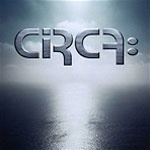Features
Billy Sherwood: The Daily Vault Interview (2007)
by Jason Warburg
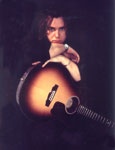
Progressive rock fans – and perhaps especially Yes fans -- are a breed apart. Deeply devoted and often just as deeply opinionated, they have a tendency to put the fan in “fanatic.” But what happens when you put two lifelong Yes fans on the phone, one a music writer and the other a longtime prog musician and -- to his own lasting amazement and pride -- former member of Yes?
The topic at hand was the new album by Circa, a fresh conglomeration of Yes associates past and present that includes Billy Sherwood on bass and vocals, Tony Kaye on keyboards, Alan White on drums and Jimmy Haun on guitars. The group sprang from a collaboration between interviewee Sherwood -- multi-instrumentalist, singer-songwriter, producer and longtime Yes collaborator – and founding member of Yes Kaye. And while we covered a lot of ground related to Circa, Billy also took the time to share stories from his time in Yes, delve into the mechanics of record-making in the digital age, and release his inner prog fan long enough to wonder at the places his musical path has taken him. A good time was had by all!
DAILY VAULT: There’s sort of an obvious question here to start off with. With all four members of Circa having played on Yes albums at one time or another, three of you having been in the band, and Tony Kaye having been a founding member, it seems impossible to talk about Circa without talking about Yes, too. And my sense is that you’re all fine with that, that you really welcome people drawing (pardon the pun) parallels between Circa and Yes.
BILLY SHERWOOD: Well, as you said we all lived in that band for years, and so it’s natural that when you get this mix of people together, it’s going to generate that kind of music. It’s not meant to be Yes, it’s meant to be Circa, but obviously the music we make together has a very Yes flavor. And that’s fine with us, because that’s who we are and where we’ve been and it’s in all of our souls to make this kind of music.
Yes fans have been hoping to hear some new music from the band since 2002, and I think most of them are pretty excited to hear Circa.
So far it’s been very well received, and the die-hard Yes fans have accepted it and dig it and it’s our goal to remain this particular lineup and carry on and make records and hopefully tour and just continue on, pushing down that musical road.
Getting into the origins of the group a little more, you and Jimmy Haun had played together off and on for a long time, and you knew Alan White and Tony Kaye from your time working with Yes. But how did this particular lineup and set of songs come together?
I had just completed Back Against The Wall, which was a remake of [Pink Floyd’s] The Wall that I did with a bunch of great “prog icon” guys, and Tony was among them, as was Alan. So at some point I said to Tony, because he lives near me, “Hey, we’re local and we’re friends, maybe we should get together and make some music.”
Through that process we started working up this material, and after awhile I said maybe we should talk to Alan and see if he wants to jump in and play on some of this stuff, because it sounds like something he’d be able to enhance and make his own and make it even better. So we gave Alan a buzz, he came down and played on the stuff, and all of a sudden it started sounding like more of a band thing than a project.
Even though I play a lot of instruments, on this project I just wanted to play bass and sing. So we needed a guitar player. Jimmy had been a friend of all of ours for ages and he’s a dear friend of mine, plus he’s a great player and I knew he would fit like a glove, so I called him and that’s how we put it all together.
Speaking of your bass playing, it definitely feels like you were focusing on that in this lineup. Your approach on “Cut The Ties” in particular struck me as very evocative of Fragile-era Chris Squire playing, very big and aggressive and melodic. Just curious -- were you just kind of playing what felt right there or were you thinking wow, Chris would really get into this?
Well, Chris has been a huge influence on my bass playing, and when I started I used to play along to Yes records to learn how to play. As I evolved as a player I took on other influences like Jaco [Pastorius] and various other bass players. But Chris’ influence on me was big, playing with a pick and trying to get that kind of aggressive tone. It isn’t like I sat in the studio and thought “This is what Chris would do,” I just did my thing, which is highly influenced by that kind of playing. It fits in that style of music, and when you do it in that style of music, it tends to sound like that kind of “Squire-y” tone and approach. I don’t mind the comparison at all because Chris is a great bass player and I’m happy to be compared to someone who plays that well!
I guess the thing that starts making it sound less like a standard bass and more like kind of a Squire or Geddy Lee approach is when the bass is moving around at a hundred miles an hour and there’s eight million notes and everything. That’s kind of breaking the mold of the traditional session bass player! [laughter] So it starts immediately fitting into a different kind of model and that’s a model I’m very comfortable working with.
I know you guys played a live show in
We played the Coach House in
Will do. I caught the cell phone video that’s up on YouTube of you guys at that show, and the sound is poor, but you can tell the crowd’s having a great time and I thought I caught snippets of “Roundabout” and “Close To The Edge.”
Yeah! We captured that show on 11 cameras, three of which were high-definition cameras, and the raw footage looks amazing to me. I’m really picky and personally not very big on filmed concerts, but what I saw was really impressive, so I’m pretty excited about trying to get this live DVD done.
That sounds great. I know it’s early, but do you have any sort of timeline on that project yet?
I’m working on it right now. It’s an arduous task to mix a live show because you’ve got microphones everywhere and to try to get some clarity out of the mix is a daunting task. It’s not going to happen overnight. I would imagine in a couple of months’ time I might have something together, but it’s going to take awhile. That’ll be the next Circa release for sure, a live DVD, and we’re talking about maybe making it a triple-disc set, one disc being the Circa material, the second being the Yes medley, and the third being bonus footage, background goofing-around kind of stuff.
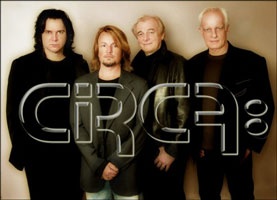
Billy Sherwood, Jimmy Haun, Alan White, Tony Kaye
On the Circa album, I really got into “Brotherhood of Man” in particular, which to me comes closer to the feel of a Classic Yes epic than anything the band itself has done since probably Going For The One. Were you guys aiming to create a new epic, or was it just one of those songs that kept stretching out and going new directions?
Tony Kaye was very influential in pushing that song in that direction and wanting a big, epic-y piece. It’s one thing to say, “Let’s write something long,” and it’s another to be ten minutes down the pipe and going “Um, is this any good… or is this just long?” [laughter] I was actually quite happy with the way that track came out. Tony Kaye’s influence on the whole production really benefited the making of this record in a big way, and he had a big role in getting that song into that kind of shape.
I see from the liner notes that Trevor Rabin got a co-writing credit with the band on a couple of tracks [“Don’t Let Go” and “Look Inside”]. I’m assuming he’s heard the finished product by now. What was his reaction?
He dug it! After the Talk tour in 1995 I said to him, hey, we should write some tunes. We had a great time hanging out on the road on that tour, so it just kind of evolved. He gave me a DAT tape with five musical ideas on it with no melody and lyric, and I took it and wrote lyrics and melody over the top, and we both dug what we had come up with, and said we were going to do something with it, but time and scheduling got in the way and it never happened. So then flash forward to about a year and a half ago or so, and I’m looking at that material again and saying “Man, this is really cool, let me mess around with this.” And so I started sketching it out and then presented a couple of those ideas to Tony and said “What do you think about this?” and “Maybe we can develop it for this project.” He really dug what he heard and we took it, reshaped it, and turned it into a Circa-sounding thing. But you still hear Rabin’s stamp [on those two tracks] big-time.
Here’s a question that, as a Yes fan myself, I’ve got to ask. You grew up a Yes fan and ended up first playing with and then producing and finally joining the band. I’ve read about how you and Jimmy got together as teenagers and played Yes songs in the back room for many, many years. Stepping back from who you are today for a minute and imagining yourself as that teenaged Yes fan again, how amazing has this path you’ve taken been?
During the gig we just did Jimmy and I were tripping, because it was like, God, we did this when we were fourteen and we used to pretend that was Alan White behind the drums -- and now it is! [laughter]
It trips me out to think about it. There’s a certain amount of fate involved in my life that I used to wonder about that I don’t even question any more, I just wake up and go with it. My time in Yes is just one of those things. For me, it was an amazing thing to grow up loving a band that much and ending up working with them and then even more amazing to end up joining and having a say and all that kind of stuff.
It was a mind-blower on many levels -- musically, business-wise, personally. I mean, that was my dream and I achieved it, you know? It’s an amazing thing and I wouldn’t trade any of that for the world, even though part of it was magical and exciting and fun, and then there was part that was really rough and tumble and all about business and sometimes in your face, too. But I’m a big boy and I dealt with both sides and just kind of put it in context.
All these years later, I wouldn’t change it for the world, I’m very proud of having been a part of Yes and been able to help it along. A lot of people when I joined were asking “How did he get in there? What a lucky guy, overnight he just joined Yes!” They didn’t realize the history that led up to that point. I’d been involved with those guys since about 1990 behind the scenes.
There was an evolution; once I met them, and knew them and was working with them, the magic part of “Oh my God, I’ve finally met these guys!” starts to go away, and you just begin having regular relationships and you realize these are just people with families. And then you meet their families, and you become part of the family. It was a magical thing.
I have other dreams, I’d love to play with Genesis and Pink Floyd, but I don’t think it’s going to happen in the same way that it did with Yes! And the good news is, out of all the bands that I could have joined, Yes was my number one all-time favorite. So I can’t really complain. [laughter]
Well, I get the sense the internal politics in Pink Floyd put Yes’ to shame!
That story made me remember when I picked up Yesyears, the 1991 boxed set, and saw that last song on there, “Love Conquers All,” and looked at the credits and said to myself “Who’s this Billy Sherwood guy, and why's he writing songs with Chris Squire?”
Exactly! [laughter] It took many years for people to figure out the history and how it evolved. Yes is a very precious thing to the fans – the super-fans – and I know, because I’m part of that guild! And people wanted to know “Who’s this stranger in Yes?” But after all this time, I think the people who may have been skeptics have realized what I did and that my participation, good, bad or indifferent, at least continued to propel the band through the late 90s.
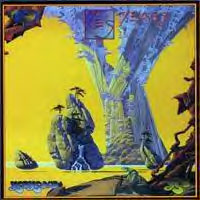
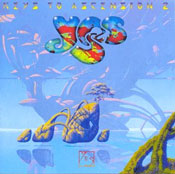
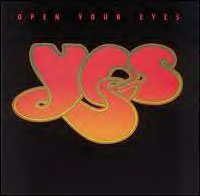
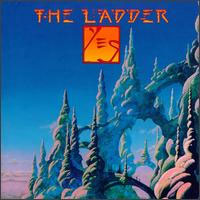
Absolutely. I hadn’t seen Yes live in almost twenty years when I caught a couple of those shows on the Open Your Eyes and Ladder tours, and it was a different configuration and a different chemistry, but it was still Yes and I loved it.
I thought it was really, really good and the band was playing great. It was my goal when I joined the band to get Yes back on the radar, because it was fading out, and I really didn’t want to see that happen to my favorite band. At the time I joined, Rick [Wakeman] had just quit, the Keys To Ascension cycle was done because there was no tour, and the band was splintering off and heading into the abyss. And for whatever reason, I just decided “I can’t watch this happen, I’ve got to try to motivate these cats to get back on the radar and get in the game.” And I did. And then when I turned around and looked, it was like, “Wait a minute. Why am I getting such grief for this?”
But over time that’s evolved into acceptance and now a lot of people who might have been nay-sayers about my joining the band at the time seem like they’ve realized things were different than they thought or assumed. It is what it is, it’s all good. I just wanted to motivate the band to keep making music together -- that was my main reason to be there.
It’s definitely taken time for some fans to come around and understand that. But as one myself, I appreciate it.
Right on. I’m happy to have done it. You know, I tell this story a lot now because I’ve gotten involved on a lot of forums online, just saying hello and interacting with a lot of people. I’m a computer junkie myself, so I figured why not jump in? But when I first joined the band, I’d call my wife from wherever I was on the road and she’d say “Whatever you do, don’t read the forum!” [laughter]
And I’d say “Why? What the hell did I do?” That’s turned around now because, as I said, I think with time people have gained a little more context. At the time, the context was kind of confusing because of the Keys To Ascension – Open Your Eyes thing. A lot of people thought that when I joined I somehow physically stopped Keys To Ascension 2 from coming out. But the reality was, Keys 2 was dead in the water, the label had told the band it wasn’t going to release it, and there was nothing happening. So after we got Open Your Eyes rolling, once we got momentum, then the label that was NOT going to put out Keys To Ascension 2 suddenly decided “Now’s the perfect time to put out Keys To Ascension 2!”
And of course that created confusion because the Yes fans thought “Well, hang on a minute, why do we have this version [the Open Your Eyes lineup with Sherwood and keyboardist Igor Khoroshev] and that version [the classic-era lineup with Rick Wakeman on keyboards]? We want that version and not this version!” It was a crazy, crazy time, but again, I wouldn’t change it for anything. I did what I did out of respect and honor for the band and I took a lot of hits for it, but I really don’t care because I’ve gotta do what I’ve gotta do.
Didn’t you co-produce that second Keys To Ascension album?
Yeah, I produced the studio stuff with the guys, “Mind Drive,” “Foot Prints” and all that stuff.
Those are great songs!
Yeah! I worked very closely with the classic lineup in my studio -- where we made Open Your Eyes shortly after that -- and I watched it all dissolving. I’ve explained this before, but it was actually happening right there in my studio, I was watching everyone fighting and the group disbanding. Had I not taken some initiative -- I’m not saying Yes would have been over, but who knows when and where it would have done something again, and I decided in my hearts of hearts that I couldn’t just watch that happening right in front of me. I had to take some initiative. And that’s what I did.
Having spent quite a bit of time in the various Yes forums myself, I’m curious to hear more of your take on them. There are a lot of, ah, characters out there...
Well, it’s interesting, because on a forum you’re free to say whatever the hell you want and you don’t really think there’ll be any repercussions. And usually there aren’t, but I’ve noticed a change now that I’m there. It’s like my wife says: “Are you sure you want to do that? It’s almost like Dad’s in the room and the kids can’t play!” [laughter] But whatever the consequences, I’m goin’ in, and I entered as Billy Sherwood, I’m not going to hide behind a screen name. I am who I am and I don’t fear that interaction.
Everyone said the same thing when I joined -- “I hope you’ve got a thick skin, because it’s gonna be nasty in here!” And I said “Yeah, I do, so don’t worry about it,” and the reality is, it’s been a very pleasant experience. I’ve had a lot of interesting conversations with a lot of cool people, and maybe it’s because “Dad’s in the room” or whatever, but the anti-Billy rhetoric has kind of chilled out. I don’t know if that’s just because these people who might have been nay-sayers are now in direct contact with me and realize “Oh, wait, he’s a human being” -- I don’t know. But I’m quite happy to be involved with it, and as I said I’m a computer junkie, so what the hell…
That’s so true. I think people do have a tendency to shoot from the hip when they’re just sitting at the screen writing and it doesn’t seem like they’re having a real conversation about real people – I know I’ve done that! -- but the minute they think the person they’re writing about might actually read their words -- !
Yeah! It changes things. And you know, I’ve seen comments on the forums that make me think “I should really engage with this guy,” but then it’s like “Nah, I don’t want to bum him out and ruin his world, he’s enjoying taking the piss out of me, so just let him.” [laughter]
But when Circa developed, we decided to go about it in a different way and use the Internet as a tool, so it felt like the right time to jump in and make direct contact. I’m on all kinds of forums now talking with all kinds of people, not to mention our 11,000 friends on MySpace. And I’m quite happy to answer anyone who takes the time to write to me. I’m not Mick Jagger; I’m not going to get eight million e-mails and not be able to respond! I can actually take the time and have conversations with people if they want to interact, and I’m quite happy to do that.
That’s a great tool for any musician in this day and age, but progressive rock in general and Yes in particular have always had a very active Internet fan base.
I think that’s because the whole prog movement, which we’re obviously a part of, all grew up with computers. I’m sure a lot of us owned a TRS-80 from Radio Shack when it first came out, because it was the coolest thing to have! [laughter] Here in 2007, I don’t know any prog rock fan or musician who isn’t net-savvy -- I’ve never met one. And I think MySpace has helped a lot of prog rock fans and musicians find each other and interact.
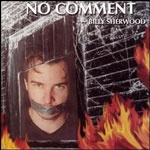
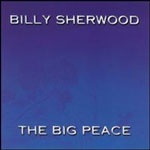
It looks like you and Circa are primarily marketing the album over the Net -- how’s that going?
Very well! We’ve sold over 1,000 records in our first month with zero promotion and zero press, with me just out there shaking hands and saying hello, digitally speaking. For us, it’s really good and we’re happy about the pace. We’re not looking for some landslide of 100,000 records sold, we’re quite happy to just have a slow steady momentum and just keep climbing that hill.
People ask me, “What are the advantages or disadvantages of the do-it-yourself approach?” At the moment, with the business collapsing in on itself everywhere you turn, and record stores dying – I mean, when Tower Records on Sunset closes, that’s the shot heard around the world! It means that all of a sudden retail is a different ballgame, and that being able to do this on the Internet is a very cool thing.
One thing that really sticks in my mind, having done this so many times with record companies, is attention span. Usually your record comes out after you work on it for a year or a year and a half, you hand it over to the label and they say great, we’re going to press this thing and put it out and we’re going to work it. And you’re excited and it comes out and you get about six to eight weeks in the spotlight. But if it doesn’t catch fire in that timeframe, they move on to the next thing. Your record doesn’t get any more attention, and you don’t get it back for seven or eight years.
In our situation with Circa, we own the record for the rest of our lives. I could work this album slowly over the next ten years, and it’s as new tomorrow as it was yesterday to people who don’t know about it. So there’s more of a chance for the music to surface and find an audience over the long term, as opposed to just giving it to a label right now that’s going to move ten thousand copies in a hurry, and then it’s over. For us, that advantage far supersedes any deal that we could get in 2007. And frankly there really aren’t that many deals out there for our kind of genre and our kind of music.
It’s also a way for us to make the kind of music we want to make, because I don’t think you could get this kind of music past a record company these days. I don’t think they’re interested and I don’t think they think it would be worth investing their money in. And it may sound cliché, but I’m not doing this for the money -- I go in there and I make the music I like to make. And when I’m done, we have an incredibly uncommercial record on our hands! [laughter]
So anyone who says we’re doing what we’re doing for the money, I’m like “Really?!” For us, long term, it’s just beneficial to be able to hold onto our work, to own it and distribute it at our pace, which is the world’s pace. If the world decides it wants 30,000 records, we can service that; that’s not an issue. The existence of the record over the long term has really become the issue for us, and so, by not putting it out through traditional means, we end up doing ourselves a service.
Here’s an example of what I’m talking about. I’ve got people constantly on MySpace telling me “Where do I find No Comment, where do I find The Big Peace?” [Billy's two solo albums to date.] Well, I really can’t even answer them, because I don’t know if the label pressed up enough to service anybody. And that’s frustrating, because those are my solo records that a label said they’d take and work for me, but if they are, why am I getting strangers telling me they can’t find it?
The good news is, people who want Circa, know where to get Circa. As far as I’m concerned, the Internet is the new frontier. We’re not the first to do this, but I think we’re among the first, and I definitely don’t think we’ll be the last. I think you’re going to see a lot of artists switching tracks as the business side of the music world continues to evolve.
[Many thanks to Billy Sherwood for spending some time talking with us, and also to his personal assistant,
Webmaster, MySpace page developer and e-mail answerer -- Mr. Billy Sherwood!]
